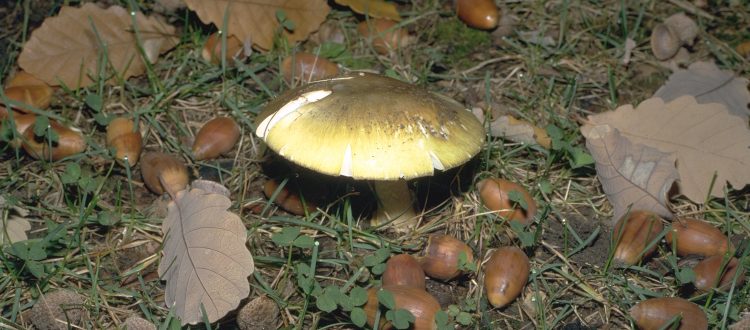
With eight people recently hospitalised in NSW due to wild mushroom poisoning, the Food Safety Information Council today warned people not to pick or eat any wild mushrooms as wild mushrooms start to appear in southern and western Australia.
Cathy Moir, Council Chair, said that foraging for wild food is becoming a popular activity but gathering wild mushrooms can be a life-threatening risk.
‘While this latest spate of wild mushroom poisonings weren’t from deathcap mushrooms be aware that the poison in one deathcap mushroom, if eaten, is enough to kill a healthy adult. In the past 16 years, four people have died after eating deathcap mushrooms found in the ACT. In 2012 two people died after eating the deadly mushrooms at a New Year’s Eve dinner party in Canberra, and in 2014 four people were seriously poisoned.
‘Deathcap mushrooms can appear any time of year but are more common during Autumn a week or two after good rains. They have been found in the Canberra region, in and around Melbourne, in northern Tasmania and in Adelaide. They are not native to Australia and are often found near oak trees growing in warm wet weather. The similar marbled deathcap mushrooms have also been recently found in WA, although they may not be as toxic.
‘Deathcap mushrooms are difficult to distinguish from other wild mushrooms so we recommend you play it safe and only eat mushrooms that you have purchased from the supermarket, greengrocer or other reputable source. People born overseas, especially in Asian countries, should be aware that these deadly mushrooms can look like edible mushrooms that they may have gathered in their home countries.
“The toxin in deathcap mushrooms is not destroyed by peeling, cooking or drying. Symptoms include vomiting, diarrhoea and stomach cramps and often don’t appear until 10 to 16 hours after eating. These symptoms may ease for 2 to 3 days before a terminal phase of 3 to 4 days begins. Without early, effective medical intervention people may go into a coma and die after 2 or 3 weeks of liver and kidney failure.
‘Nine out of ten deaths from mushroom poisoning in Australia result from deathcap mushrooms. However there are other wild mushrooms in Australia that, while not fatal, can make you ill with abdominal pain, vomiting and diarrhoea. These include the yellow stainer which resembles a field mushroom and is the most commonly ingested poisonous mushroom in Victoria. Australian Poisons Information Centres received almost 900 calls about possible wild mushroom poisoning over a recent 12 month period, approximately a third of which were referred to hospital or medical treatment. In NSW during 2018, 70 people were admitted to hospital with poisoning. Almost 40 calls were made to the NSW Poisons Information Centre in the past week.
‘Many reported cases of yellow stainer poisoning are in children under five years of age. As well as never cooking or eating wild mushrooms, remember that small children have a natural inclination to put things in their mouths so keep an eye on them when outdoors at this time of year. Parents, schools and childcare workers should regularly check outdoor areas and gardens for mushrooms and remove them to reduce the risk of accidental poisoning. This will also protect your pets.
‘If you suspect you may have eaten a deathcap mushroom don’t wait for any symptoms to occur but go to a hospital emergency department taking a sample of the mushroom with you if you can. You can also contact the Poisons Information Centre on 13 11 26 (24 hours a day 7 days a week),’ Ms Moir concluded.
Note: Cathy Moir, food microbiologist and Group Leader CSIRO Agriculture and Food, was recently elected Chair of the Food Safety Information Council in March 2019 when former Chair Rachelle Williams retired after 4 years in the position. FSIC members have expressed their appreciation of Rachelle’s achievements during her time as Chair and are pleased that she has agreed to continue as a Director of FSIC and as Company Secretary.
Further information:
ACT Health: If you think you see any possible Deathcap mushrooms growing in Canberra do not touch but report them contact Access Canberra on 13 22 81 see more information
Queensland see more information
Better Health Channel (Victorian Government) see more information
Australian National Botanic Gardens see more information
WA Health: if you have concerns about possible wild mushroom poisoning contact the WA Poisons Information Centre on 13 11 26 see more information
Tasmania http://www.dhhs.tas.gov.au/publichealth/food_safety/information_for_consumers
Media contact:
Lydia Buchtmann, Food Safety Information Council, 0407 626 688 or info@foodsafety.asn.au

